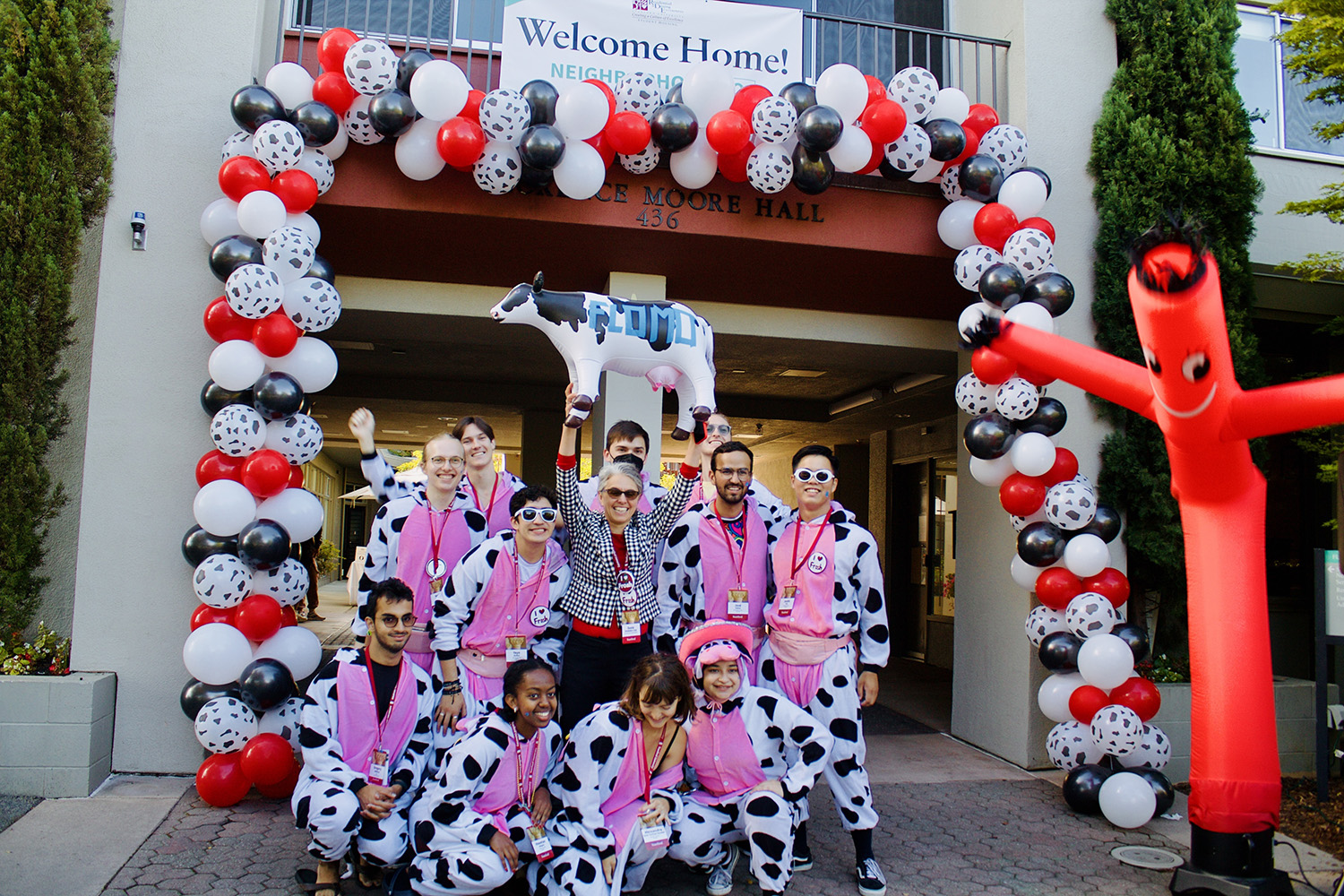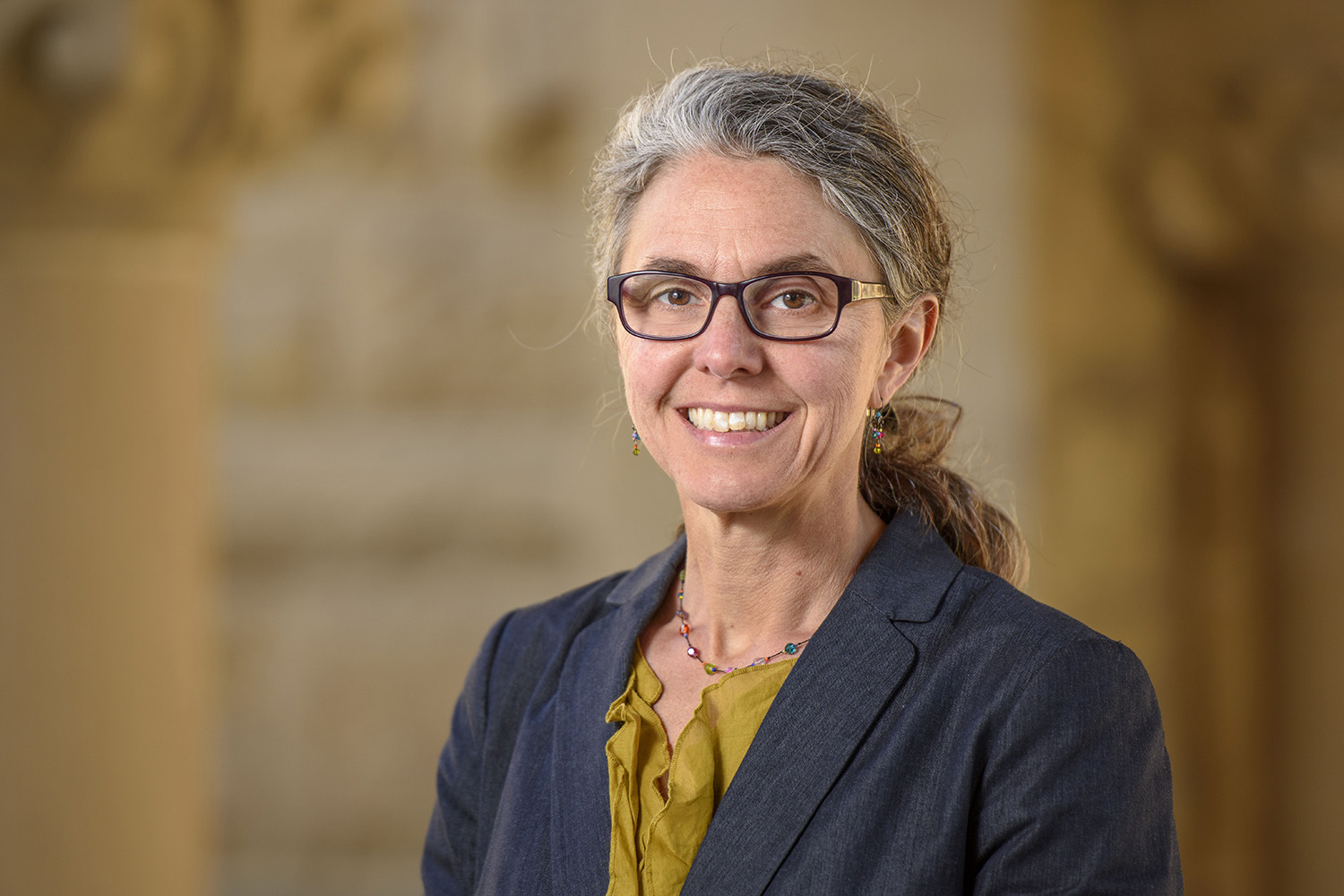Vice Provost for Student Affairs Susie Brubaker-Cole will step down at the end of fall quarter after six years in the position and plans to move back to Oregon, where she grew up and previously spent several years as a university administrator.
Provost Jenny Martinez has appointed C. Matthew Snipp to serve as interim vice provost once Brubaker-Cole steps down. Snipp, a professor of sociology who has been at Stanford since 1996, currently serves as vice provost for faculty development, diversity, and engagement and is a resident fellow at Murray House. A search committee for Brubaker-Cole’s successor will be formed.
“The greatest joy of my Stanford career has been working with my VPSA colleagues on behalf of students. Their commitment to empowering students to grow and develop to their fullest potential is unmatched,” Brubaker-Cole said. “I am honored to have served as their leader and am tremendously proud of all that we’ve accomplished over these six-plus years. Their empathy and compassion for the challenges students face today is their greatest strength. I know that they possess all that is needed to continue to meet the challenges of our world and to advance the many projects underway, ensuring our students thrive in their lives at Stanford and preparing them to lead in their communities and professions for a lifetime.”
The Vice Provost for Student Affairs division includes the University Registrar, the Dean of Students office, Vaden Health Services, Residential Education, the Graduate Life Office, Stanford Career Education, student organizations and Greek life, Bechtel International Center, classrooms and student technology, Student Financial Services, the Centers for Equity, Community, and Leadership, and many other student service areas.
“I’m so grateful to Susie for her deep dedication to students and to the student experience at Stanford. She has led efforts on so many important issues, such as student mental health and wellness, and also exhibited such grace as she led her phenomenal team through the unprecedented challenges of the pandemic. We all owe her a debt of gratitude for her very hard work, and the expertise, empathy, and kindness with which she has done that work,” Martinez said. “I am also extremely grateful to Professor Matthew Snipp for his willingness to serve as interim vice provost. Matt is famous for his care and concern for students, both as a longtime faculty member and a resident fellow. He is also an experienced university leader, and I know he will ensure a smooth transition as we search for a permanent replacement.”
‘Our Most Important Work’
Brubaker-Cole first arrived at Stanford in 2000, serving as the university’s associate vice provost for undergraduate education and undergraduate research. In the role, she led the expansion of undergraduate research opportunities through departmental and faculty grants, and led the university’s development of an academic advising director model. She also worked as a resident fellow for a frosh and sophomore residence, directing residential programs and student staff development.
Brubaker-Cole then returned to her home state of Oregon. There she served as Oregon State University’s associate provost for academic success and engagement and led OSU’s Student Affairs division before returning to Stanford as vice provost for student affairs in 2017.
Over the years, she’s maintained a deep connection to Oregon, particularly Ashland, where her first job as a teenager was handing out programs at the Oregon Shakespeare Festival.
As Stanford’s vice provost for student affairs, Brubaker-Cole’s work focused on six key areas reflecting the most crucial issues facing the student community, commonly referred to as “Our Most Important Work.” These include community and belonging, equity and inclusion, mental health and well-being, house in order, supporting academics, and integrative learning.

Vice Provost for Student Affairs Susie Brubaker-Cole, center, poses with a group of residential student staff during frosh move-in day in 2022. (Image credit: Courtesy Sydney Osifeso)
Under her purview, the university expanded access to Counseling and Psychological Services, and introduced a teletherapy pilot, culminating in a model this fall that enables every student up to 12 free therapy sessions, accessible from anywhere in the U.S. And in September 2020, Student Affairs launched the well-being communications initiative, which includes “The Flourish,” a publication providing articles and resources on key monthly health and wellness topics, as well as in-person events to support student mental health and well-being.
She led efforts to expand the professional staff and resources available through the university’s Centers for Equity, Community, and Leadership, expanded support of undocumented students, and launched a pilot community space for students with disabilities.
During the global COVID-19 pandemic, Brubaker-Cole provided leadership for student care as a member of the University Policy Committee, supporting the creation and implementation of COVID-related protocols and policies. In a period when most undergraduates were studying from home, she would share videos from campus while out walking her dog to both provide health updates and give students at home a continued sense of connection to the campus.
Over the years, Brubaker-Cole was a regular at several Stanford traditions, participating each year in the Band Run and, for the past two years, donning glitter and sequins to perform at the university’s beloved Dragfest.
A champion of studying and solving campus issues through joining student, faculty, and staff efforts, she chartered multiple committees and task forces including the Committee of 12, which has led to the Academic Integrity Working Group, the Disabilities Task Force, and the current Neighborhoods Task Force. And more recently, she spearheaded Student Affairs’ social life revitalization efforts post-pandemic, including expanded student access to free event spaces, increased funding for neighborhood programming, and new cultural and social programming in the Bechtel International Center.
